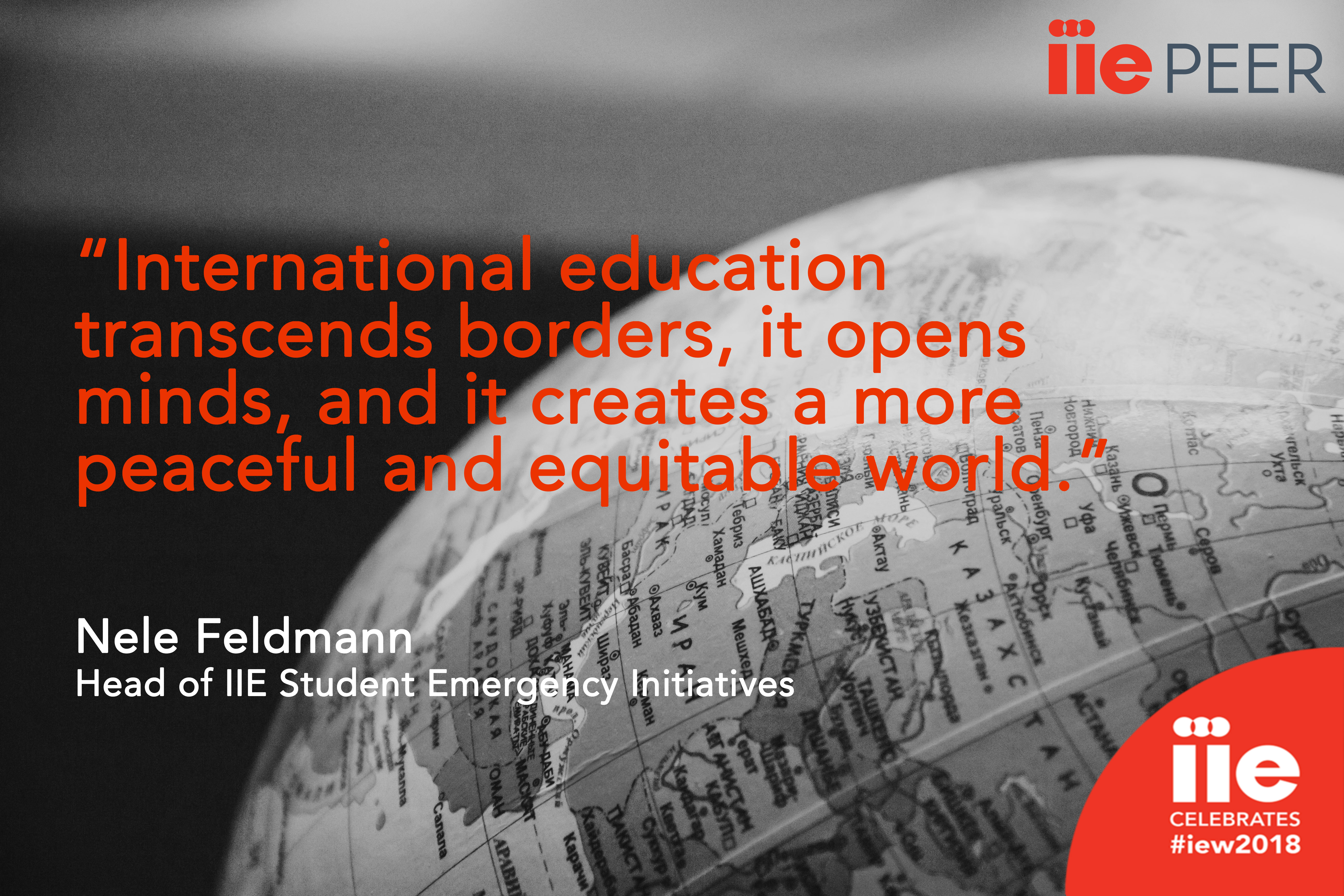Every year in mid-November, IIE together with universities, schools, government agencies and other non-profit organizations is celebrating International Education Week. For IIE, International Education Week marks one of our most important events of the year, the reveal of the Open Doors Report. The Open Doors Report is a testament of the importance of the United States as the number one destination for international students and reminds us of IIE’s commitment to the values of international exchange and cultural understanding. The reveal of the Open Doors Report also offers an opportunity to reflect on the role IIE and universities can and should play in offering higher education opportunities for students who have been displaced from their home countries by armed conflict and who have limited to no opportunities to reconnect to higher education.

To explore this question in more details, IIE's Platform for Education in Emergencies Response (IIE PEER) recently hosted a workshop together with our colleagues from the Association of Collegiate Registrars and Admission's Officers (AACRAO) on “Best Practices in Admitting Vulnerable and Displaced Student Populations on U.S. Campuses".
While the topic sounds technical, the issue of identifying students from areas of conflict, helping them navigate the application process, and welcoming them to U.S. campuses is at the heart of providing displaced students with educational opportunities. International Offices who see the inclusion of displaced students on their campuses as part of their mission are at the forefront of providing safe academic haven to students who may otherwise not have an opportunity to obtain a university degree.
Hosting displaced students and scholars means finding local solutions for one of the most pressing global challenges of our time: the displacement of 68.5 million people from their homes and the lack of educational opportunities for these people. While universities in the United States and elsewhere won’t solve the causes for the global displacement alone, they can provide students, professors, and researchers with the opportunities needed to preserve and advance scholarship.
The work of IIE Scholar Rescue Fund (IIE-SRF) is also a critical component of IIE’s work in this area. Today, the world faces a higher education emergency larger than ever before, and IIE-SRF helps people from areas affected by conflict and natural disasters. Thousands of university professionals and students are now displaced in countries such as Syria, Yemen, and Iraq. During this unprecedented migration crisis, fellowship applications from threatened scholars have increased by 50% in the past three years.
Since its founding in 2002, IIE-SRF has protected the lives, voices, and ideas of scholars around the globe. On fellowship, IIE-SRF scholars are paired with higher education institutions that best fit their academic expertise, where they conduct research, teach courses or lead seminars, guest lecture, contribute to faculty projects, and/or serve as advisors to students.
Education is a human right and who is better placed to safeguard this right than universities and organizations like IIE?
International education transcend borders, it opens minds, and it creates a more peaceful and equitable world. This International Education Week, let’s reflect on how IIE’s Student Emergency Initiatives and IIE-SRF promote access to opportunity, advance scholarship, and build economies for displaced students and scholars around the world.
Written by Nele Feldmann, Head of IIE Student Emergency Services.
Publishing Date: November 14, 2018

